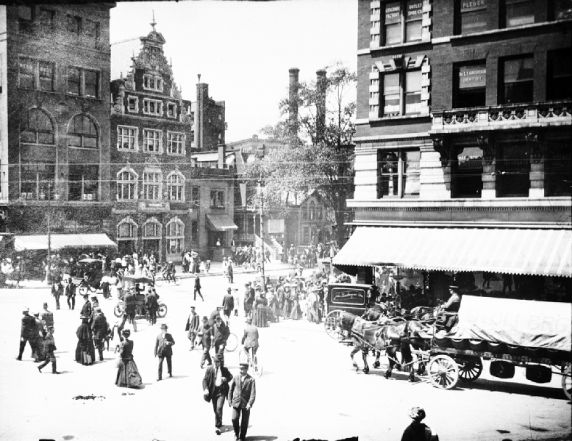Hidden Gem: A.G. and Marie Mezerik Papers
It’s hard to explain to people just how extensive (over 2,500 collections) and varied the archival holdings of the Reuther Library are. When someone asks, we first respond with the “Big Ones, ” such as the UAW, the American Federation of Teachers, the Wayne State University Archives. There are important medium-sized collections too, among them Focus Hope, the United Farm Workers and the Coalition of Labor Union Women (CLUW). Then there are the very small collections that are sometimes overlooked, hidden like small pebbles in a jar filled with big stones. These often contain fascinating materials that complement the Reuther’s more prominent collections.
One of these is the A.G. and Marie Mezerik Papers.
This small collection contains only two items, each from a different time in the life of A.G. (Avrahm G.) Mezerik. Mezerik was born in 1901 in Toledo, Ohio, and came to Detroit with his parents as a child. The first item in his collection is a memoir of 18 pages (possibly part of a planned longer work). In it, he describes life in Detroit from 1912 to the US entry into World War I, painting a picture of a growing, vibrant, multi-cultural city seen from a teenager’s point of view. Mezerik describes the life of his Jewish family and the many groups who lived in nearby neighborhoods, including African-Americans, Poles, and white Christians from the South. The growing and chaotic automobile scene—with many companies and individuals trying to make and sell cars—fascinated him. He crossed paths with Detroit notables like Henry M. Leland and Charles Freer. Mezerik paints a compelling picture of his experiences as a boy on the bottom of the economic ladder, always trying to make a few cents. His job as a paperboy exposed him to many aspects of the city at the time, some of them of questionable legally and morally, and he brings these adventures to life.
The second document from Mezerik’s papers dates from some twenty years later, and it gives a glimpse into the fraught and violent world of the UAW and other nascent labor unions of the 1930s. The documents, including flyers, handbills, photos, letters and newsletters, are from a scrapbook of materials of the Conference for the Protection of Civil Rights (CPCR, later called the Civil Rights Federation), of which A.G. Mezerick was the steering committee chair and Marie Hempel, who became his wife, was the secretary. The CPCR organized in support of sit-down strikes, led efforts to fight police brutality against workers, brought to light discrimination and violence against African-Americans and disseminated information criticizing Henry Ford and Ford Motor Company for its aggressive tactics. The Black Legion, a white supremacist group based in Detroit, was a particular target of the CPRC’s efforts. The CPCR was also involved in garnering aid for fighters in the Spanish Civil War and other leftist political issues of the time.
In the 1940s, the Mezeriks left Detroit for New York City, where he worked as a journalist for several national publications and was a correspondent for the United Nations. Due to his activities in the labor and civil rights movements, he was a target of anti-Communist hunts during the McCarthy era of the 1950s. A.G. Mezerik was the author of numerous articles and books on a wide variety of economic and political topics. He died in 1986 at the age of 85.
The Mezerik Papers complement several other collections at the Reuther library, including the UAW Public Relations Department: Ford Motor Company Series Records and the UAW President's Office: Walter P. Reuther Records of the 1930s. The Reuther also holds the records of the CPCR, under its post-1945 name, the Civil Rights Congress of Michigan. The papers of Maurice Sugar and Peter H. Amann include much information about this period in Detroit—Sugar’s particularly about the early days of the UAW and civil rights and Amann’s concerning the Black Legion. The papers of Henry Kraus also treat the chaotic 1930s in the labor unions. A small collection of newsletters, Civil Rights News, from 1938 to 1940, gives another perspective on efforts that Mezerik and the CPCR led in Detroit.
Find more hidden gems at the Reuther Library by searching or clicking around this website.


 Reddit
Reddit Facebook
Facebook LinkedIn
LinkedIn